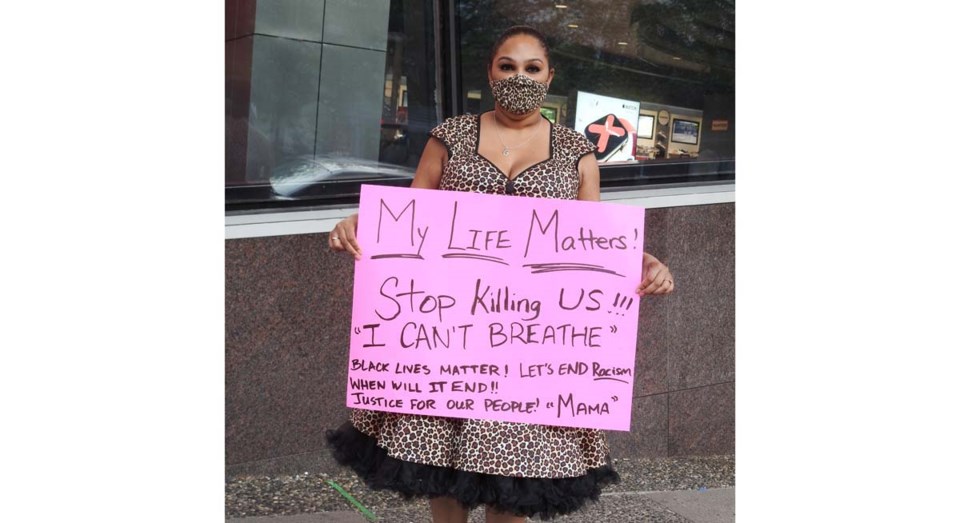Richmond is a long way from Minneapolis — not just physically, but in every sense.
We don’t have police killing people on the street. We don’t have flaming racial divides. We don’t have the same level of crippling economic disparity or segregated communities.
After all, when it comes to anti-Black racism, Canada was the end of the underground railroad. The land of freedom for slaves escaping the southern states. So, really, what’s this all got to do with us — apart from affording a self-congratulatory opportunity to look south of the border with a sense of arrogance and disgust?
Well, turns out La Toya Barrington thinks it has lots to do with us.
On the steps of the art gallery in downtown Vancouver as a part of the anti-racism protests in response to the recent death of George Floyd at the hands of a Minneapolis police officer, Barrington told of years of being subjected to racists insults, being called the n-word, being asked, “How do I know your hands are clean when your skin is brown?”
And, no, those ignorant comments were not hurled by one of those idiotic Americans we enjoy feeling superior to. Rather, that was life here in Richmond.
And it hurt.
I don’t know Barrington, but I remember her from a few years back at a Richmond Chamber of Commerce business awards gala. Her company, Go2Girl, was nominated in the small business category. I can’t say I remember a lot of nominees at these events, but Barrington’s effusive spirit (not to mention colourful style) was hard to forget.
What also stood out was her sense of compassion, both for her clients and co-workers, and pride in her work.
Who would have thought she would be plagued with anxiety and wondering who she could have been had she not been subjected to those racist taunts.
“All that stuff (growing up) still affects me today. I’m not the person I could have been,” she told our reporter.
So, when I heard Doug Ford, the premier of Ontario, saying the difference between the U.S. and Canada is like “night and day” when it comes to racism, I have to wonder how he would even know. Has he been asked how people would know if his hands are clean because of the colour of his skin?
There is nothing like lived experience; if you don’t have that, at least recognize you’re not the authority.
To simply dismiss anti-Black racism as an American thing is to dismiss the very real and painful experiences of many Black Canadians.
That said, I also take note of Barrington’s comment, “but I am grateful to be Canadian. I really think life would be different for me growing up (as a Black woman) in the States.”
I guess the question now is not how bad is it, but how do we change?
The image of the Minneapolis police station engulfed in flames was a powerful symbol — almost akin of the storming of the Bastilles in 1789.
However, the “storming” marked the start of the French Revolution which overthrew the monarchy and established France as a republic.
I don’t see a revolution coming. This pattern of police brutality followed by outrage, followed by more police brutality has almost become routine.
What I could see, and many are calling for, is a divestment from police forces and more investment into housing, addiction support and other social programs.
No one is saying we don’t need police, but to put more resources into preventing the need for them seems to me like a no-brainer.



